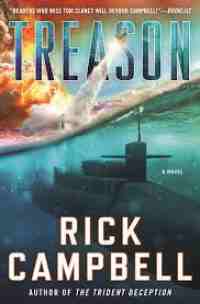American Spy by Lauren Wilkinson
 Friday, March 29, 2019 at 7:26AM
Friday, March 29, 2019 at 7:26AM 
Published by Random House on February 12, 2019
American Spy is a mixture of domestic drama and spy thriller. Much of its focus is on the difficult childhood and questionable parenting that shaped its protagonist, Marie Mitchell, and on Marie’s problematic relationship with her mother. Surrounding those domestic problems is a plot that follows Marie’s short career with the FBI and as a contractor working against the interests of a politician in Burkina Faso.
The novel begins in Connecticut in 1992. An attempt to kill Marie in her sleep doesn’t end well for the assassin. Two days later, using fake passports, she moves her two sons to Martinique, where her mother was born and is currently living.
After a day, Marie begins writing a journal so that her children, who believe their father died in a war, will one day understand the truth about her mother’s life. Most of the story consists of that journal. Do mothers who write extended explanations to their children include dialog and atmosphere? Maybe literature professors do, but not FBI agents who have been trained to stick to the facts and produce the dullest prose imaginable. I didn’t buy the journal concept, although most of the time it is easy to ignore the fact that the story is not told in a conventional narrative.
Marie’s story starts in New York, when in 1987 she is asked to leave the FBI so that she can work as a temporary contractor for the CIA. But Marie’s backstory dates to her childhood in Queens, where her father was a cop. Her interest in espionage may have been born when her 13-year-old sister confidently announced her intent to become a spy, showing no concern that her race might be a barrier to joining the intelligence community. Helene was always the braver, less timid sister, and it was Helene who encouraged Marie to follow in her footsteps. Some of the novel’s backstory follows Marie’s aborted relationship with Helene during their adulthood, as well as Helene’s romantic relationship with Daniel Slater. That relationship leads to revelations that become a turning point later in the story.
By 1987, the FBI had proven itself to be more lawless than the organizations upon which it spied, including its role in the murder of Fred Hampton while he slept. Marie has little love for her employer and is pleased to be asked to help gather intelligence about Burkina Faso while its president, Thomas Sankara, is in New York. The long-term goal is to influence the country’s elections with a political party America controls — the CIA’s version of “true democracy.” Marie has little interest in American expansionism, and even less in sleeping with Sankara in exchange for an obscene amount of money, but in the belief that she can outwit both her handler and Sankara, she accepts the assignment in order to pursue an agenda of her own.
The main plot follows Marie’s relationship with Sankara as she tries to sort through how she feels about his charismatic condemnation of imperialism and his flirtation with authoritarianism, how she feels about the CIA’s attempt to use her, and how she feels about the revelations mentioned above. The pace is deliberate but the story is so rich in detail that it never becomes dull. The plot holds a nice surprise although not the sort of surprise that has become conventional in spy novels.
The decision to emphasize domestic drama might put off some spy novel fans but it might also appeal to domestic drama fans who typically avoid spy novels. I wouldn’t herald Lauren Wilkinson as the second coming of John le Carré, as have some people who blurbed the book, but Wilkinson’s fresh take on spy novels has some appeal. I appreciated its focus on a country that is rarely in the news and on the way in which private companies meddle in foreign affairs with America's under-the-table blessing, not to promote democracy but to increase private wealth. Apart from the novel’s other merits, I also appreciated Wilkinson’s graceful prose.
RECOMMENDED
 TChris |
TChris |  Post a Comment |
Post a Comment |  Lauren Wilkinson,
Lauren Wilkinson,  spy in
spy in  Thriller
Thriller 


